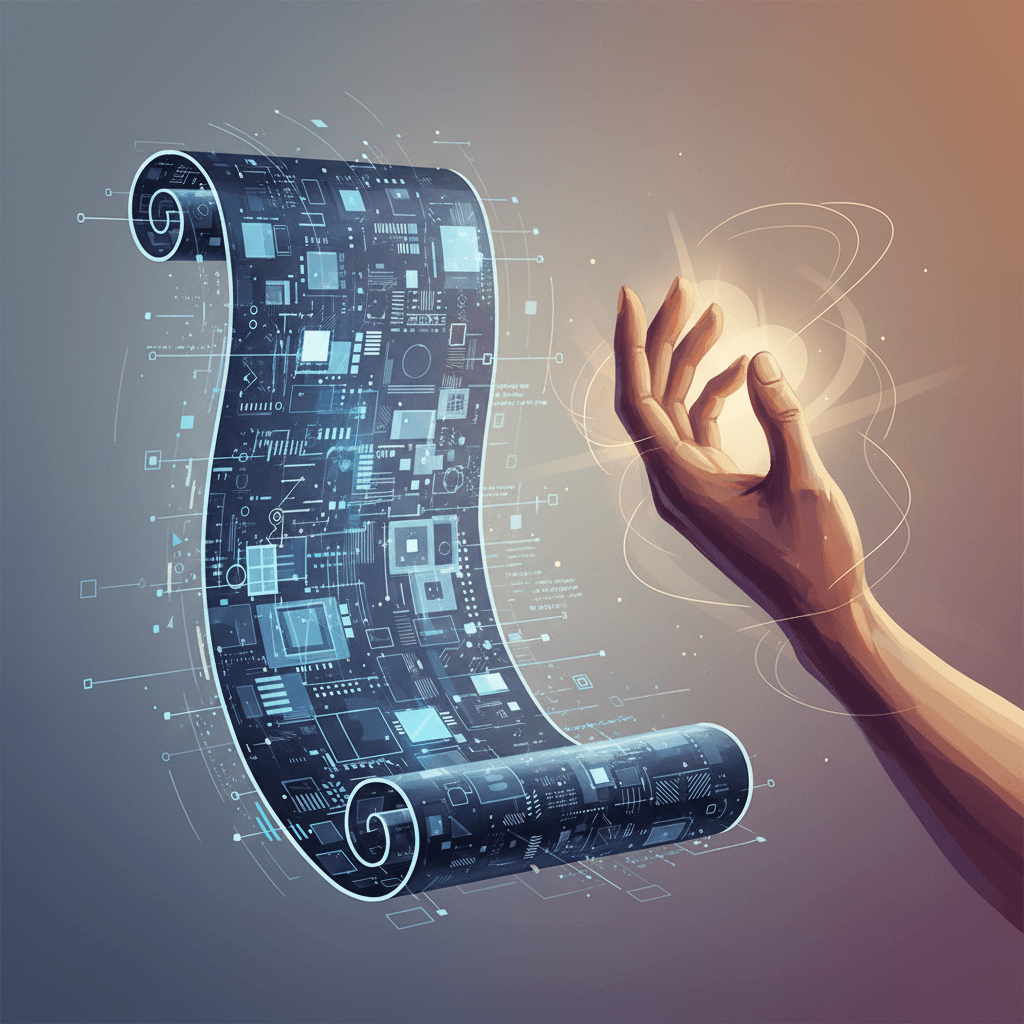Altman: AI Masters Poetry, But Human Connection Defines Art
Altman predicts AI poetry's technical perfection will clash with art's intrinsic human value, redefining creativity.
November 10, 2025

In a world rapidly embracing the capabilities of artificial intelligence, OpenAI CEO Sam Altman has offered a provocative glimpse into the future of creative expression. He predicts that AI will one day achieve the ability to write poetry that is technically indistinguishable from, or even superior to, the work of human masters, reaching what he terms a "10 out of 10" level. However, in a crucial caveat to this prediction of technical perfection, Altman believes that for the most part, no one will care.[1] This assertion cuts to the core of a burgeoning debate about the nature of art, the value of human experience in creative works, and the ultimate role of AI in industries once thought to be exclusively human domains.
The technological underpinnings for Altman's prediction are rapidly falling into place. Advanced AI language models, such as those developed by OpenAI, are trained on vast datasets of literature, including immense collections of classic and contemporary poetry.[2] Through deep learning techniques, these models can recognize and replicate intricate poetic structures, from the strict rhyme and meter of a sonnet to the open-endedness of free verse.[2] Recent studies have already shown that non-expert readers not only struggle to distinguish between AI-generated and human-written poems but, in some cases, actually prefer the AI's output, rating it higher on qualities like rhythm and clarity.[3][4][5][6] This preference is often attributed to the accessibility and straightforwardness of the AI's work, which can lack the deliberate complexity and ambiguity that human poets often employ.[3][7] As these systems continue to evolve, their ability to generate technically flawless and aesthetically pleasing verse is expected to become even more sophisticated.[2]
Despite this trajectory toward technical mastery, Altman's prediction hinges on a belief that the value of art is deeply intertwined with its human origin.[1] The core of the argument is that even a perfectly constructed poem will lack a genuine emotional core if it does not spring from lived experience.[1] Art, in its many forms, serves as a medium for expressing and communicating emotions, personal histories, and ideas that are often difficult to convey through literal language.[8][9][10] It is a reflection of the human condition, shaped by the unique perspectives, memories, and consciousness of the creator.[11] An AI, for all its processing power, lacks this inner world of experience and the accumulated memories of a lifetime that shade human creativity.[12] This sentiment is echoed by many in the creative community who argue that a poem is more than an algorithm; it is about meaning, empathy, and the surprising connections that arise from the space between logic and passion.[3] Altman himself draws a parallel to the game of chess, where computers have long surpassed human grandmasters, yet people remain far more interested in watching two humans compete, valuing the shared struggle and ingenuity over the cold perfection of a machine.[1]
The implications of this dynamic extend far beyond the realm of poetry, touching on the future of all creative industries and the evolving relationship between humans and artificial intelligence. Altman has consistently positioned AI as a democratizing force, a tool that can lower barriers to creativity and allow more people to engage in artistic work.[13][14][15] He envisions a future where human creativity is enhanced by AI's efficiency, leading to new forms of collaborative art.[16][17] However, this vision is not without its critics, and concerns about copyright, fair compensation for artists whose work is used to train these models, and the potential devaluation of human skill are prevalent.[13][18][19] Altman has acknowledged these concerns, suggesting potential new models where artists could opt-in and receive revenue when an AI uses their style.[13][19] This ongoing dialogue highlights a central tension: while AI may serve as a powerful creative partner, the definition of authorship and the value of originality in a world saturated with AI-generated content are becoming increasingly complex.[18]
In conclusion, Sam Altman's prediction about flawless AI poetry that fails to captivate a human audience encapsulates a critical paradox in the age of advanced artificial intelligence. While the technical capacity of AI to mimic and even surpass human skill in creative fields is advancing at an exponential rate, the intrinsic value of art appears to remain deeply rooted in the human experience. The journey, the struggle, the emotion, and the unique consciousness embedded in a piece of work are what create a connection between the creator and the audience.[11][20] As AI-generated content becomes ubiquitous, it may, as Altman suggests, lead to a greater appreciation for works that are authentically human.[1] The future of creative industries will likely not be a simple replacement of humans by machines, but a complex and evolving landscape where AI acts as a tool, a collaborator, and a catalyst, forcing us to continually re-examine what it truly means to create and what we seek from art.
Sources
[2]
[5]
[6]
[9]
[10]
[11]
[12]
[13]
[14]
[15]
[16]
[17]
[18]
[20]